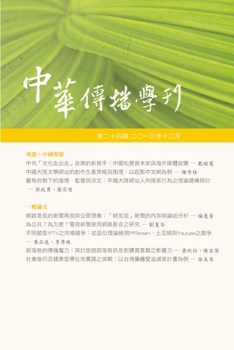 閱覽人數: 2568
閱覽人數: 2568
December
2013
No. 24
中國專題
Chinese Topic頁數:3 - 41
作者(中)
戴瑜慧
作者(英)
Yu-hui Tai
關鍵詞(中)
中國審查制度、合法性危機、走出去、紅色資本家、軟實力、媒 體收購
關鍵詞(英)
Chinese censorship, legitimacy crisis, go global, red capitalists, soft power, mergers and acquisitions (M&A)
中文摘要
本文指出 2008 年奧運聖火抗議事件促使中共調整「文化走出去」 政策,改採激進擴張手段。在國營媒體之外積極吸納收編中國私營資 本家,並建立「中國國營銀行─中國私營資本家─海外侍從資本家」 的三角聯盟,此後於歐美台港迅速收購媒體。此策略首先鎖定海外 媒體的流通部門,如中國萬達集團在 2012 年收購美國第 2 大電影院 AMC 後成為世界最大的電影院擁有者。並借助海外資本家進入他國文 化和土地產業,快速擴展中共對海外社會與媒體的影響力。
英文摘要
We argue that the Chinese Communist Party adjusted it’s “Go Global” policy after the 2008 Olympic torch protest, which agitated the CCP. The CCP held a series of “Grand Overseas Propaganda” meetings since the end of 2008 and adopted a radical expansion policy. The CCP actively co-opted Chinese private capitalists and built a new triangle alliance that comprises-- Chinese state banks, Chinese private capitalists, and overseas clientaele capitalists. Since then, the alliance has acquired media corporations in the United Kingdom, United States, Hong Kong, and Taiwan. One such example is Wanda, which became the world’s largest movie theater owner in 2012. These types of media acquisitions prove that the first goal in the expansion of the “Go Global” policy is media distribution. The CCP has expanded its influence overseas, arousing caution about media monopoly and the expansion of Chinese censorship.